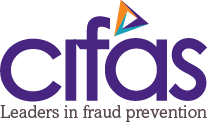APPG Report Highlights Young People At Risk To Fraud
APPG Report Highlights Young People At Risk To Fraud This Christmas
APPG calls for Government, social media companies, law enforcement and industry to do more to protect young people from financial crime.
The All-Party Parliamentary Group on Financial Crime and Scamming has today released its report on the impact of fraud on young people. This follows an inquiry earlier this year which heard and received evidence from law enforcement, financial services, education providers and wider industry.
The report highlights that young people are both at risk of being a victim of fraud, but also being drawn into financial crime as a perpetrator. Evidence submitted to the APPG inquiry showed that 41% of money mule accounts are linked to young people aged 25 or under and there was 24% increase in young people under 21 being involved in fraud either as a victim or perpetrator from 2015 to 2017.
The report calls on schools, law enforcement, social media companies, industry and government to do more to tackle this problem.
The report recommends that a package of education measures be introduced by schools, industry and government, to include:
- Counter-fraud education should be introduced into the national curriculum across all UK schools for those aged 11-16 years old;
- Parenting courses on financial crime and abuse to be introduced;
- Government to work with industry on providing preventive advice to parents on financial crime;
- Educational establishments should hold counter fraud events.
The report also features specific asks for social media providers, law enforcement and the sentencing council. The report calls on social media platforms to be more proactive in preventing scams being promoted on their platforms and that they should do more to raise awareness to young people about fraud and protecting their identities online.
It also calls for law enforcement to have dedicated resources to disrupt money mule networks that target young people and for policing to work to encourage young people to report instances of frauds and scams.
Lastly, it asks the sentencing council to issue an amended guideline on fraud identifying the corruption of a young person recruited as a money mule as an aggravating factor for the purpose of sentencing.
This report has been released in the run up to Christmas when at a time of increased spending, fraud experts believe people may be more susceptible to fraudsters approaches and could be at a greater risk of becoming money mules.
Money muling is where individuals commit fraud by moving money (proceeds of crime) through their own account and then to a third party. Other examples include selling your bank account to criminals so they can move proceeds of crime through it.
Conor Burns MP, Chair of the All-Party Parliamentary Group on Financial Crime and Scamming said:
“I welcome and commend this report. Over the last year the APPG has been gathering evidence and views from law enforcement, industry, consumer groups and charities on the issue of young victims of financial crime.
“All agreed is a big and growing problem and that more needs to be done to help protect young people from frauds and scams.
“I believe there is more that government, industry, social media platforms and law enforcement bodies can do to help protect and prevent young people becoming involved in fraud and scams.
I hope to see the recommendations in the report brought into action.”
Mike Haley, Chief Executive of Cifas, said:
“Cifas welcomes this report. It highlights the urgent need for counter fraud education in all UK schools.
“With Christmas only a week away we want to warn young people, in particular students, to be wary of anyone approaching them in the student union or elsewhere with promises of cash for the use of their bank account. Year on year we are seeing more young people being targeted to become money mules.
“Young people being involved in fraud either as a victim or perpetrator is a growing problem and only by joined up approach that includes education in schools can this worrying trend be tackled and reversed.”
Jenny Barksfield, Deputy CEO, PSHE Association, said:
“Fraud is a serious issue, so we welcome this report and its recommendation that all young people must learn about the risks. PSHE education is the ideal context for this learning as it develops an understanding of key concepts relating to financial risk and digital literacy. We encourage our national network of teachers to cover this vital area of PSHE, using the quality assured materials produced in partnership with Cifas.”
A copy of the report can be found here: /uploads/files/APPG_V3_email.pdf
14th December 2018
< Back to NewsAPPG Report Highlights Young People At Risk To Fraud This Christmas
14/12/18
Read moreAPPG LAUNCHES INQUIRY INTO YOUNG VICTIMS OF FINANCIAL CRIME
Today, Wednesday 14 February 2018, the All-Party Parliamentary Group on Financial Crime and Scamming launches a review into how young people can be protected from financial crime.
Figu...
14/02/18
Read moreThe All-Party Parliamentary Group on Financial Crime and Scamming held its first event in Parliament on Monday 4th December 2017, a briefing by Superintendent Peter Ratcliffe of City of London Police.
Superintendent Ratcliffe briefed Members of Parliament, Peers and other stakeholders o...
04/12/17
Read moreThe Member of Parliament for Bournemouth West, Conor Burns MP, has this week launched a new All-Party Parliamentary Group on Financial Crime and Scamming.
Fraud is currently the number one volume crime in the UK. The most recent Office of National Statistics England and Wales Crime Surv...
01/12/17
Read more




